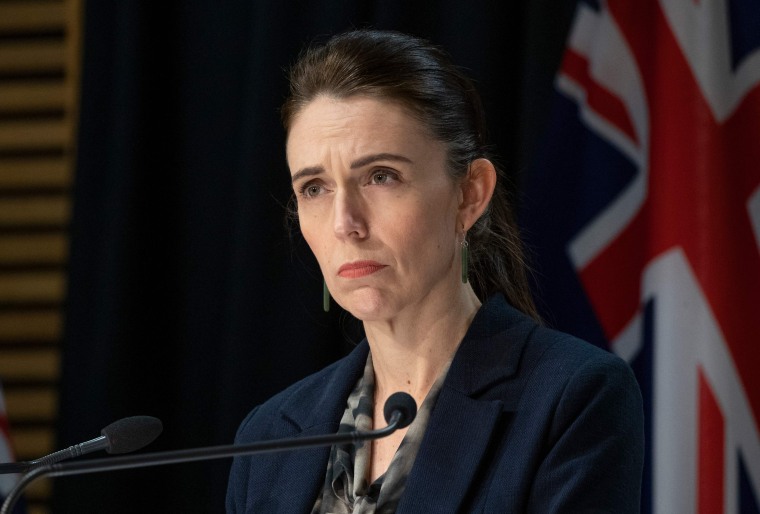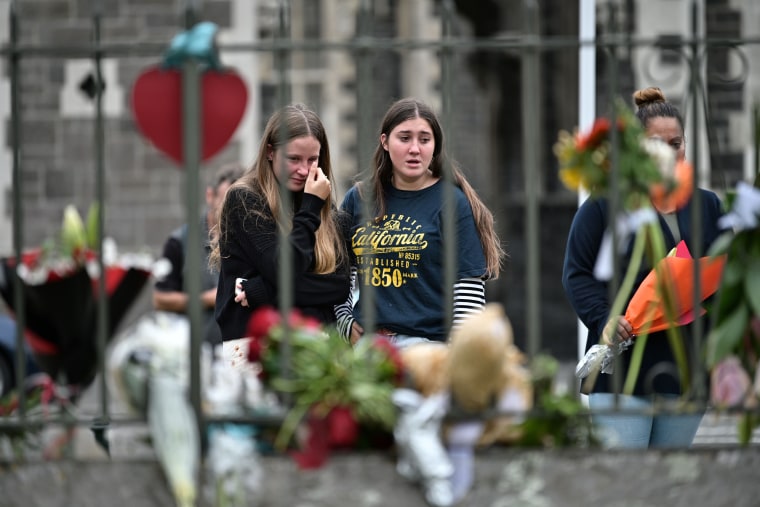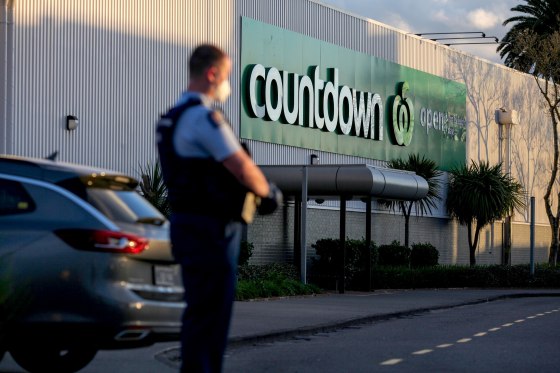CHRISTCHURCH, New Zealand — New Zealand lawmakers on Thursday made it a crime to plan a terrorist attack, strengthening the country's security legislation after a mass stabbing earlier this month.
Officials say the new law, which also gives police greater power to conduct warrantless searches, is in line with counterterrorism legislation in Australia and Britain and less expansive than laws in the United States. But critics have expressed concern about its potential impact on civil liberties.
The new law, which is expected to go into effect on Monday, is partly designed to guard against "lone wolf" attacks like the stabbing this month and the 2019 mass shooting in Christchurch, the worst terrorist attack in New Zealand's history.
Justice Minister Kris Faafoi said after the vote that the bill "strengthens our laws to fight the ever-evolving nature of terrorism and closes longstanding gaps in our counterterrorism legislation to better protect New Zealanders."
Download the NBC News app for breaking news and politics
Passage of the law was accelerated this month after the stabbing attack, which was carried out by a Sri Lankan national who had recently been released from prison. The man, 32, had been under 24-hour police surveillance for almost two months, and officers were following him on Sept. 3 when he entered a supermarket in Auckland, New Zealand's largest city, grabbed a knife and turned it on shoppers. Six people were stabbed and two others were injured in the chaos before the man was shot dead by police.
The Auckland attack was shocking to a country that typically has some of the lowest murder rates in the developed world. Public outrage was heightened when Prime Minister Jacinda Ardern, who had been briefed on the man's case multiple times before the attack, admitted that he was a “known threat” who had been on the radar of national intelligence for years. The man had been found guilty of possessing Islamic State propaganda, but prosecutors were unable to bring terrorism charges against him under New Zealand's existing laws.

After a lengthy debate that went late into Wednesday night and continued Thursday morning, lawmakers from New Zealand's two main political parties voted in favor of the tougher legislation, while it was opposed by center-left and libertarian parties that had raised concerns about surveillance overreach.
Opponents objected to the haste with which the law was being altered, as well as the bill's expanded definition of terrorism to include the intention to intimidate rather than to induce terror. Others cited experts who suggested that prosecuting suspects on charges of planning or preparing for an attack bordered on "thought crime."
There are also concerns that some of the new offenses, including around weapons training, are intended to allow for prosecutions in cases like the 2007 police raids on rights activists from New Zealand's Maori indigenous group, who were arrested on terrorism charges over paramilitary camps they had allegedly set up in a mountainous area of New Zealand's North Island. Prosecutors later said the country's laws were insufficient for the charges to be pursued.
"The government denies that its new law would apply to such circumstances, but the way the new law is written, and the expanded definition of terrorism, means this is a real concern," said Graeme Edgeler, a barrister and legal commentator in Wellington, New Zealand's capital.
Te Rangikaiwhiria Kemara, a Maori sovereignty activist who was at the center of the 2007 raids, told NBC News that he feared the new law might undermine rights the Maori say they are guaranteed under New Zealand's founding document.
"In the hands of racist police and judges, this legislation provides no protection in my view against criminalization for legitimate self-determination movements," he said.
Other New Zealanders cautiously welcomed the move.
“Of course we don’t want Big Brother watching over us, but we also don’t want terrorism,” Joanna Church, 22, a student from Robinson’s Bay near Christchurch, told NBC News.

A royal commission examined New Zealand's anti-terrorism laws after the March 2019 attack in Christchurch, in which a 28-year-old gunman from Australia opened fire on Muslim worshipers at two mosques, killing 51 people. While the commission concluded there was little that could have been done to stop that attack, it made a number of recommendations designed to prevent future lapses, including updating laws to criminalize the planning of a terrorist attack.
After the attack in Auckland, opposition lawmakers said Ardern's Labour Party had not acted fast enough to amend the laws.
In a statement on Thursday, Mark Mitchell, counterterrorism spokesman for the opposition National Party, said that while the updated legislation was a step in the right direction, the government should also adopt other commission recommendations.
“Time is of the essence if we are going to protect Kiwis, and the government needs to make these recommendations happen as quickly as it can," he said. “This threat is not going away."
